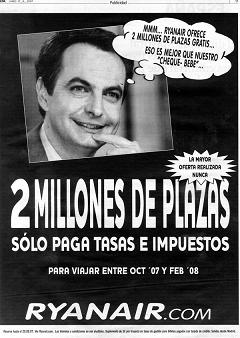Unemployment still rising in Spain
Sustained by the construction sector, the growth in tourism and agriculture, the economy of the province of Murcia has gone from strength to strength over the last decade with an average annual growth estimated to be around 3.9% since 2000.
However, the current situation appears quite different. Over the last year alone the number of registered unemployed has risen from 45,158 to 68,632 which is a rise of 52%. The growth of unemployment in Murcia is mirrored in other Spanish Mediterranean provinces – unemployment is estimated to have risen by 36.8% in the Comunidad Valenciana alone and by 36.1% in the Balearic Islands.
In these coastal areas the crisis in the Spanish construction sector is particularly noticeable. The construction sector accounts for up to 67% of all employment in these areas. The number of unemployed construction workers has almost doubled in the last 12 months. In other areas such as Malaga, Almeria or Cadiz where employment is closely linked to the construction sector it has risen by a staggering 80%.
In the Canary Islands where unemployment in the construction sector has also doubled over the last year the increase in the number of registered unemployed between June and July this year was mainly due to unemployed construction workers. In the Comunidad Valenciana and Castilla-La Mancha more than two thirds of all newly registered unemployed are workers from the construction sector.
Overall out of all the 36,492 people who became unemployed in July this year 20,231 were from the construction sector. Although the numbers of unemployed construction workers normally increases over the summer months the numbers registering as unemployed this year is far more notable than other years and is seen to be another indicator of the crisis in the Spanish construction sector.
Immigrants are also being affected by lack of work and the number of unemployed foreign construction workers has more than doubled over the last 12 months with 41,437 more unemployed.
Another significant indicator of difficult times ahead for the economy is the situation in Aragon which was the most dynamic region in Spain with a 4.5% growth of in its GDP last year. However, following the completion of work on the Zaragoza Expo unemployment here has risen by 5% over the last month and by 29% since this time last year according to figures provided by the Spanish Ministry of Work and Immigration
Labels: economic and business news







